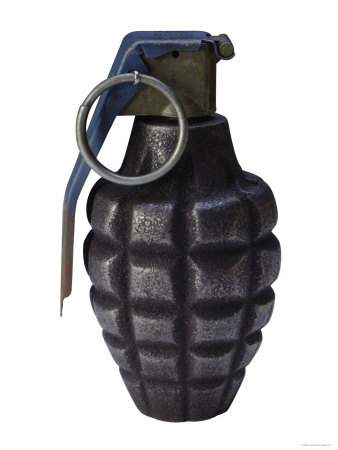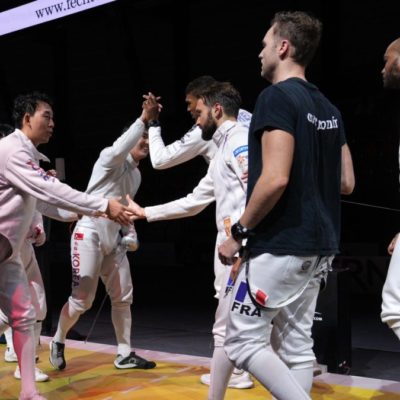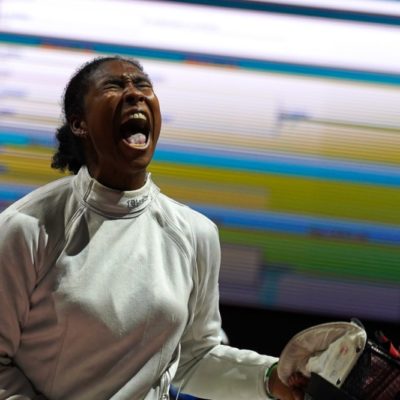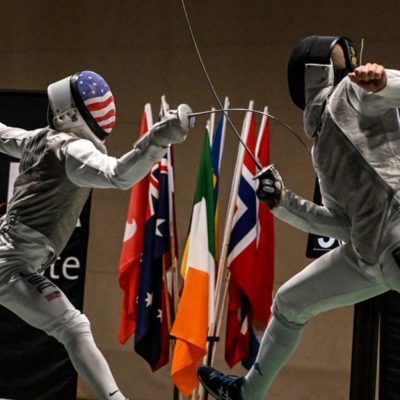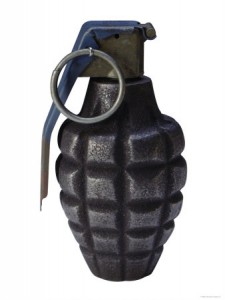 I was looking through a number of fencing blogs over the past couple of days and found this one over at the blog “Autumn Lighting” talks about the different types of grenades used by the Allied and Axis forces during WWII.
I was looking through a number of fencing blogs over the past couple of days and found this one over at the blog “Autumn Lighting” talks about the different types of grenades used by the Allied and Axis forces during WWII.
So, what does that have to do with fencing? Head on over to the post “Lungeing at Conclusions” to read Dave’s thoughts and join me after the jump for more.
Dave was looking at one aspect of footwork, the lunge, and how he sees it used in foil vs. epee. I think you can focus in a little finer within the weapons to see how different tactics are used based on the type of fencer, or what their bout strategy is.
In foil, you can use the deep lunges or you can use a shorter lunge. Speaking from my experience, the deep lunges are intended to hit the target, or if parried, leave the distance close enough to initiate infighting or a quick forward recovery to pass the opponent and get a halt.
The shorter lunge in foil is conducive to a counter-riposte where the attacker purposefully comes up short expecting the parry and then has more space to work with for a counter-riposte or a counter-attack vs. the riposte.
It’s useful to take that analysis of actions and apply them to the people you fence every day at your club and in your region. Ask yourself – what kind of tactics do they employ, and how have they shaped their “tools” (footwork, stance, blade actions) to facilitate their tactical goals.
By analyzing that in your competition and in yourself, you’ll find that you become better able to recognize the tactical tendencies of other fencers and be better able to plan out your own game in response.
What observations have you made about your fencing game recently?


